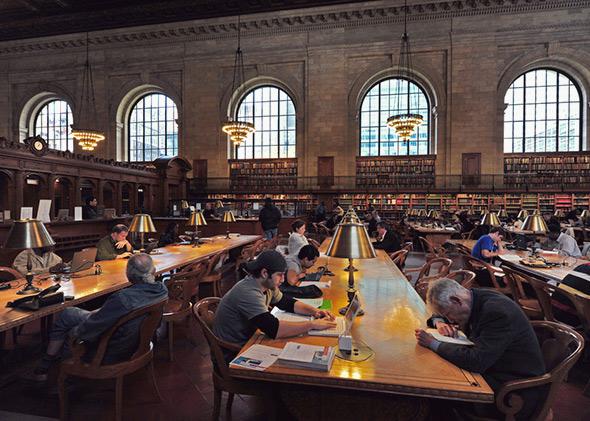Law schools and the legal job market are having a mutual meltdown. The number of applicants has collapsed, while schools can’t seem to control their soaring costs and the industry they feed is drooping like a day-old party balloon. New graduates are desperate for jobs just as clients are desperately cutting spending. As a recent law school graduate staring into the employment abyss, here’s my modest proposal: Junk the state bar exam, an outdated, expensive licensing scheme that prevents mobility. We should get rid of state-by-state tests and bar admissions and replace them with a universal exam that licenses new lawyers to practice anywhere in the country. It even exists already—it’s called the Uniform Bar Exam.
As it stands, a new graduate has to choose a single state where she’ll apply for admission to the bar, even if she doesn’t yet have a job there. If she moves somewhere else later, she has to shell out $1,000 in fees to take a new test and master the intricacies of another state’s law to pass it. (Or she’ll confront a tangled array of state “reciprocity agreements” that let you sub into another state’s bar under certain conditions, but that are mostly available to seasoned lawyers with five or more years of experience.)
It’s easy to see how this creates labor inefficiency, locking lawyers in place. The state-based system has been the same since the Gilded Age, and its justifications are parochial: State bar examiners and courts fear losing control over who gets in, and local law firms believe it keeps out competition. But with a systemic crisis roiling the profession, those concerns carry less and less weight. Even the American Bar Association has demanded reform, noting that every other major profession long ago abandoned local standards.
The Uniform Bar Exam, or UBE, tries to fix this mess by taking advantage of the existing system rather than reinventing the wheel: A centralized group in Wisconsin called the National Conference of Bar Examiners writes more than half the questions most states use on their bar exams. These questions are about “general principles of law,” like the four most common definitions of the insanity defense against a murder charge. When a state adopts the UBE, it agrees to let grads take a test made up entirely of NCBE questions—and then it allows them to move their score to any other state that accepts the UBE. Since 2010, 14 states have started using the new test, with two or three more following every year. (New England appears to be the next big region for growth.)
States still get to make their own determinations about each applicant’s character and fitness, and choose how good a score they’ll require for acceptance. What they lose is the chance to grill students on local law. No more questions, like the one on Virginia’s recent exam, about how to use a local rule called “detinue” to recover Colonel Riles E. Plumlee’s ceremonial sword. That’s not much of a loss: States that have adopted the UBE discover that the trade-off works fine and local information can be taught via more flexible seminars and quizzes that preserve graduates’ mobility. No states adopting the UBE have expressed any desire to return to the old system.
The upside is graduates are no longer tied to a single locale, in which they may not have a job and to which they probably aren’t pledged for life. That, in turn, means new lawyers can combat the profession’s problems by selling their skills on the national market, rather than an artificially segmented one. Bonus: If you flunk in one UBE state, you can still move your score to a state with a lower score requirement—as Hillary Clinton might have liked to do when she didn’t pass the Washington, D.C., bar exam years ago. At the same time, local law firms benefit from a wider pool of résumés and business opportunities across state borders, which gives people shopping for lawyers more choices, too. The switch to the UBE is low-hanging fruit—a rare reform with potential to help almost everybody. The next test is July 29 and 30. Why not give it a shot?
